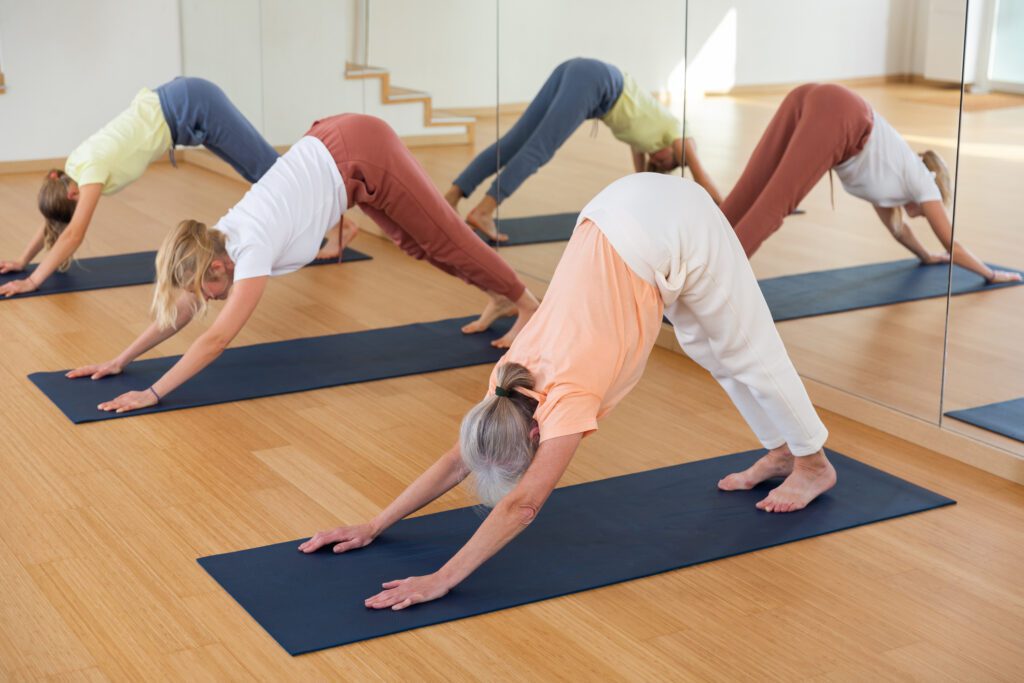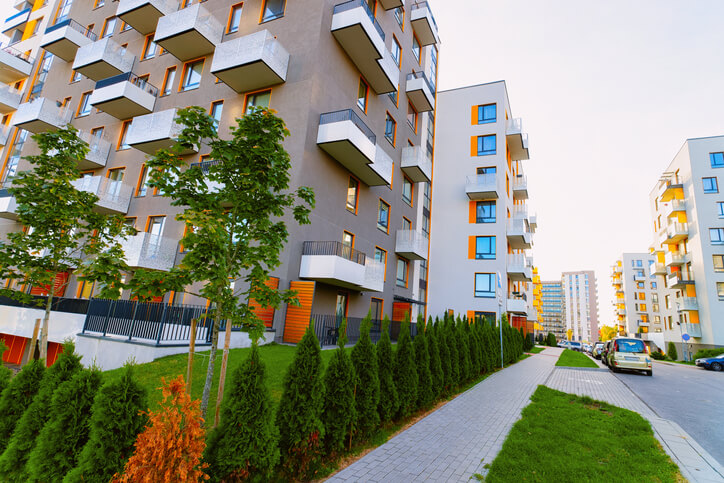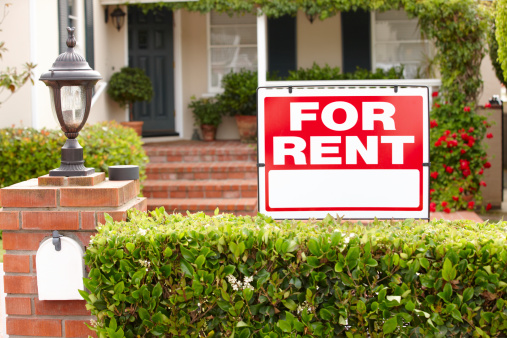The “rent or own” decision isn’t just a conundrum for millennials. A growing number of baby boomers and retirees are weighing their options too.
In fact, according to a report by iProperty Management:
- The number of homeowners who are under 35 years old is down 6.9% year over year
- When we look at homeowners 25 years old and younger, that number is down 16% in one year
- Homeownership is highest among those that are between the ages of 70 and 74, with 82.3% owning homes
- Among those that do rent, some may have always rented because that’s their preference or because they were unable to buy. But many of them are former homeowners.
For some homeowners, the idea of renting is unthinkable because they’ve become accustomed to owning property and don’t want to have a landlord. Other homeowners end up renting after owning their residence because they can’t find a house that they want to buy that meets their priorities and their budget. For others, renting after selling a home is a strategic decision, one that is part of their preretirement or retirement planning.
Here are a few factors to consider when you’re ready to make a move.
Pros of Renting After You Sell Your Home
If you’re leaning toward renting, you may find these aspects appealing:
Flexibility of location
Baby boomers, looking forward to the next phase of their lives, may like the option of “testing” a new location or a new lifestyle without the long-term commitment of home ownership. Some want to try out urban living or experiment with different regions of the country. If you think you want to move to a warmer climate, you can rent there for a year or a season and then decide if you want to commit to buying property there.
Flexibility can be important if you move to be near your grandchildren or other family. If they later relocate (for example, if a job change takes them to another area of the country), as a renter you can follow them or easily move.

Smoother transitions
If your situation changes—or that of the family you’ve moved to be near, as described above—as a renter, you’ll be able to respond much faster. Leaving an apartment generally entails providing a 30- or 60-day notice to the landlord, and you don’t have to find a replacement tenant before you can move. When you need (or want) to move as a homeowner, the process can take much longer and involves more moving parts, from attracting a buyer to successfully closing the sale.
Amenities and convenience
Baby boomers who choose to rent an apartment may find that having an onsite fitness center, package delivery service, and a parking garage offer a nice lifestyle benefit. Many buildings now offer concierge services and yoga studios, plus the convenience of a staffed front desk.

Maintenance-free living
Years of home ownership result in both a sense of pride about your property and, sometimes, a sense that your time is curtailed by home maintenance responsibilities. Renting provides the freedom to call the landlord or the superintendent when something goes wrong, rather than hassle with do-it-yourself repairs or paying for a contractor.
Downsizing
While you can downsize into a smaller house, you still have to take care of your place, which means keeping some tools and responsibility. Renting allows you to get rid of possessions and embrace a no-maintenance lifestyle. In addition, many apartment buildings include storage facilities so that you have a place for a few extra things you’d like to keep.
Fewer costs
While not all rentals are less expensive than buying a place, many of the costs of home ownership add up to require more money than renting. Renters don’t have to pay property taxes, condo or homeowner association dues, or repair bills. Plus, renters insurance is typically less expensive than homeowner’s insurance, since you are insuring your belongings and not an entire property.
Freeing up funds for investments
When you sell your home and make a profit, you can take those profits and use the money to invest. The capital can be used to boost your retirement funds or to pay off bills so you can start living debt-free. Vacation, anyone?

Cons of Renting After You Sell Your Home
While those factors are compelling, you should also consider a few potential negative aspects of renting:
Rent increases
While a fixed-rate mortgage offers stable housing payments during the loan term, you do face potential increases in property taxes. However, when you rent, your monthly payment can change annually depending on the terms of your lease and on local rent control laws in certain urban areas.
Tip: Signing a longer lease is one way you can offset potential increases. You may also want to investigate the local rules about how often your rent can be raised and by how much, so you’re prepared for a possible rent hike.
Loss of tax benefits
Renters don’t have the ability to take a tax deduction on their federal income taxes for property taxes or the interest paid on a mortgage. You can adjust your take-home pay to have more taxes taken out or consult a tax advisor on the impact of this change in your circumstances.
Privacy issues
When you own your home, you enjoy a level of privacy that rental living may not provide. In an apartment building or complex, you’ll be living in closer proximity to other people whose lifestyles and schedules may be very different from your own. Living in a home and having neighbors is quite different from living in an apartment building with loud or heavy-footed neighbors above you.

Possibility you could have to move
While renting offers flexibility, it also provides a bit less stability. If, for example, you rent in a single-family home, you could have to move if the owner decides to sell the property or, even worse, if the owner loses the property in a foreclosure. The same thing could happen in a small, individually owned apartment building. This is less likely to happen in a larger apartment community.
Landlord issues
A landlord is comparable to the boss of your home, so you’ll need to think about whether you can accept that transfer of responsibility to someone else.
Tip: Before signing a lease, try to check out landlord reviews. Just as in a job interview, the exchange of information should be two-way, with you as the renter approving the landlord, as well as the landlord approving your application.
Lack of control
As a homeowner, you’ve become accustomed to deciding when to repaint or to make repairs or upgrade the flooring. It can be an adjustment to realize that your landlord will make those decisions when you rent. You may want to ask your potential landlord about your options for painting rooms or changing window treatments and whether the landlord plans to replace appliances or do other upgrades in the future.
Pet restrictions
Many rentals have pet restrictions written into the lease that can range from a complete ban on all pets to limits on the type or size of pets allowed. Be sure to check out pet policies before you sign a lease.

Insurance, No Matter How You Live
So, which is right for you in retirement? Owning, renting, or some combination? If you decide to become a renter, don’t forget that renters insurance is just as essential as homeowners insurance. While you’re leaving behind some of the responsibilities of home ownership, you still want to be sure that you have liability coverage to protect you from a lawsuit and coverage for your personal belongings and guests.







Interesting & encouraging read as we are thinking about selling out & starting apartment living. I’m excited to begin a new chapter in a new city still to be determined.
Thanks for this info. We have our house for sale and will be making a large profit if it sells. We’re planning on renting for a while until we decide what our next move is. You’ve brought up some good points about renting vs. buying.
I like your idea Katie. My question is, will you be investing your home sales profit? And what is considered a large home sale profit? I live in the SF Bay Area so ya know how that goes. I’d like to consider selling and then renting, but I do wonder, what is considered a large home sale profit? Thank you!
I was wondering if a daughter& husband rented part of our house could they use that as a way to establash a permanent address. They need to have their drivers license,tags to vehicle renewed. Would that count?
I read your posts all the time and benefit from many. The info is concise and generally shows pros and cons that make it even more helpful. I moved into an apartment 18 months ago as a result of a sudden divorce. I had know idea how carefree a living situation could be. The biggest pro is giving me immeasurable more time to take care of my 2 elderly parents. Not to mention the savings in electricity, heating costs, taxes, water conditioning and more. Some cons are no protected parking, limited storage space and some heavy footed neighbors above. My landlord is awesome!…. making same day repairs and outstanding property care. But that may not be the case for everyone. Also, if I’m going away overnight or many nights, my only concern is stopping my mail. Renting can offer a bounty of freedom.
Hello, Mary. We are glad you are enjoying apartment living. Thanks for sharing your own pros and cons of renting.
Thanks for your comment. I’m currently a home owner exploring ways to move from where we are for a number of reasons including my senior mother. Trying to move somewhere more desirable but at the same time want to free up our time in home care.
I have benefited from reading all the pros and cons of renting vs owners my. We are homeowners in our early 70s and are looking at moving to a well known continuous living senior community near our grandkids and the neighborhood we raised our family and have lived in for the past 35 years.
Entrance into the community would require a huge down payment Equal to the size Amount we would recuperate from the sale of our current home. This would be in addition to a sizable monthly fee, that includes utilities maintenance lawn care meal plan etc. Would you address the pros and cons of that kind of moving to owning to a month to month program that in theory would cover all of the health and medical transitions necessary as we live our last years.
Hi Norma. That is a great topic idea that we will explore in the near future.
Thanks for the info, It gets me thinking about living somewhere I might like. We could sell our house, use the extra income for retirement and family.
Hello, James. Glad you found the information helpful. It would be great to live somewhere you might like.
It’s good to know that renting an apartment lets you test an area before making the long-term commitment of buying a home. My wife and I are looking into moving to a new city, but we don’t know if we’re sold on the city yet. We’ll be looking into our options for apartments to test the area out.
Thomas- best of luck in your move!
It got me when you said that it would save us from paying the contractors when renting since the landlord will be taking care of it. I will definitely rent because of this since I do not have savings as of now. I just have to sell the house because I need to help my mom with her medications.
the air compressors that we use at home are the high powered ones, we also use it for cleaning~
Keep up the excellent piece of work, I read few posts on this internet site and I conceive that your web site is rattling interesting and has got lots of superb information.
Thank you for your feedback!
Nice post. I learn something more challenging on different blogs everyday. It will always be stimulating to read content from other writers and practice a little something from their store. I?d prefer to use some with the content on my blog whether you don?t mind. Natually I?ll give you a link on your web blog. Thanks for sharing.
Hiya, I am really glad I have found this info. Nowadays bloggers publish just about gossips and internet and this is actually irritating. A good site with interesting content, this is what I need. Thank you for keeping this web site, I’ll be visiting it. Do you do newsletters? Can not find it.
Good morning! Thanks for reaching out, please sign up for our newsletter.